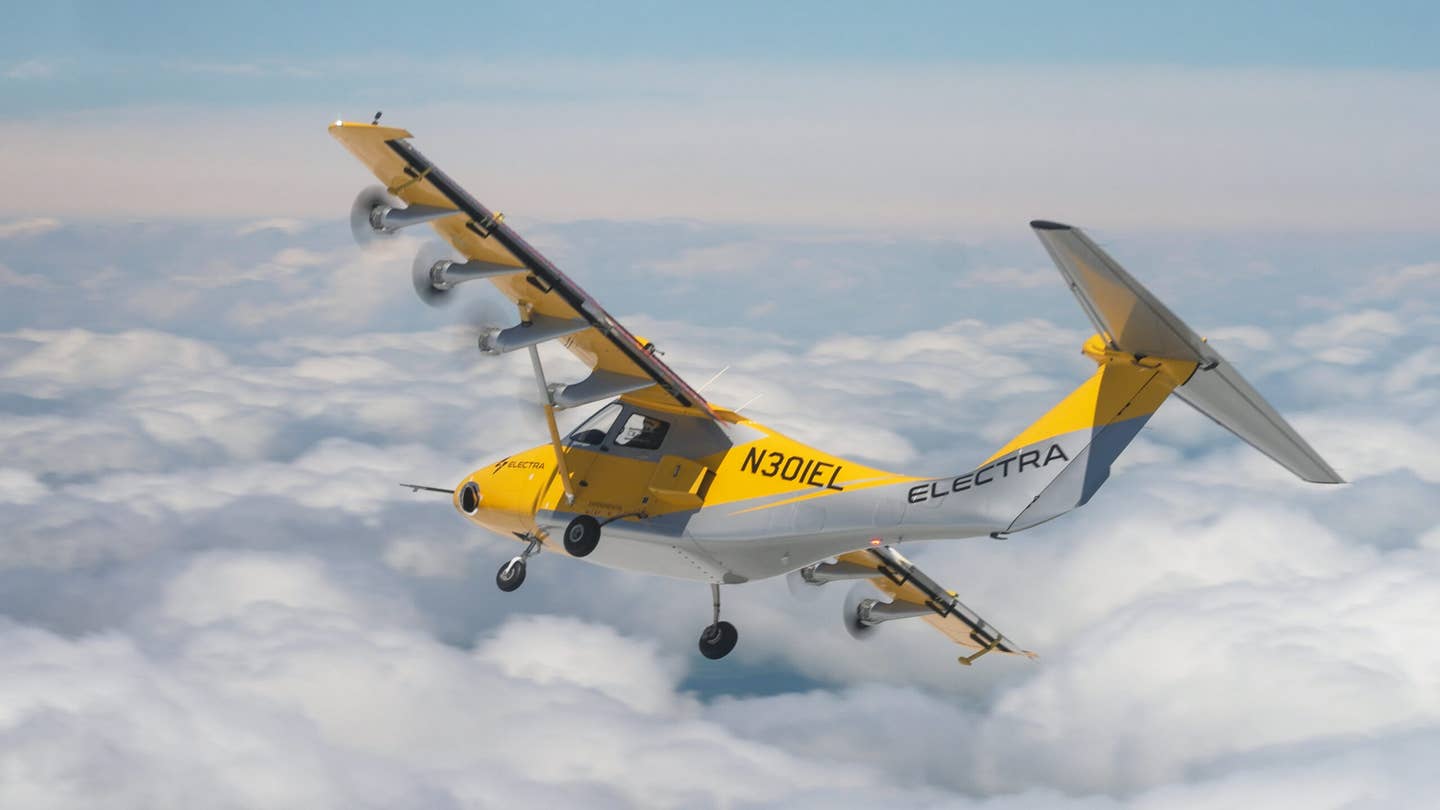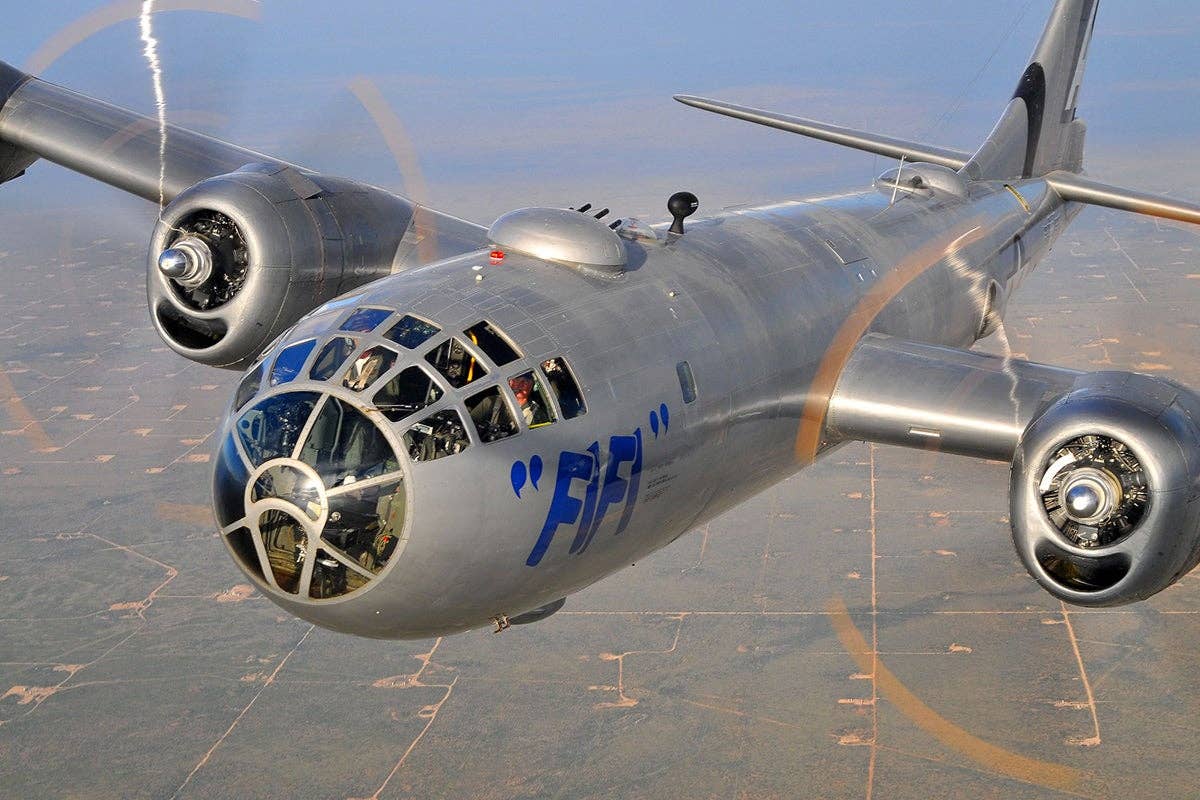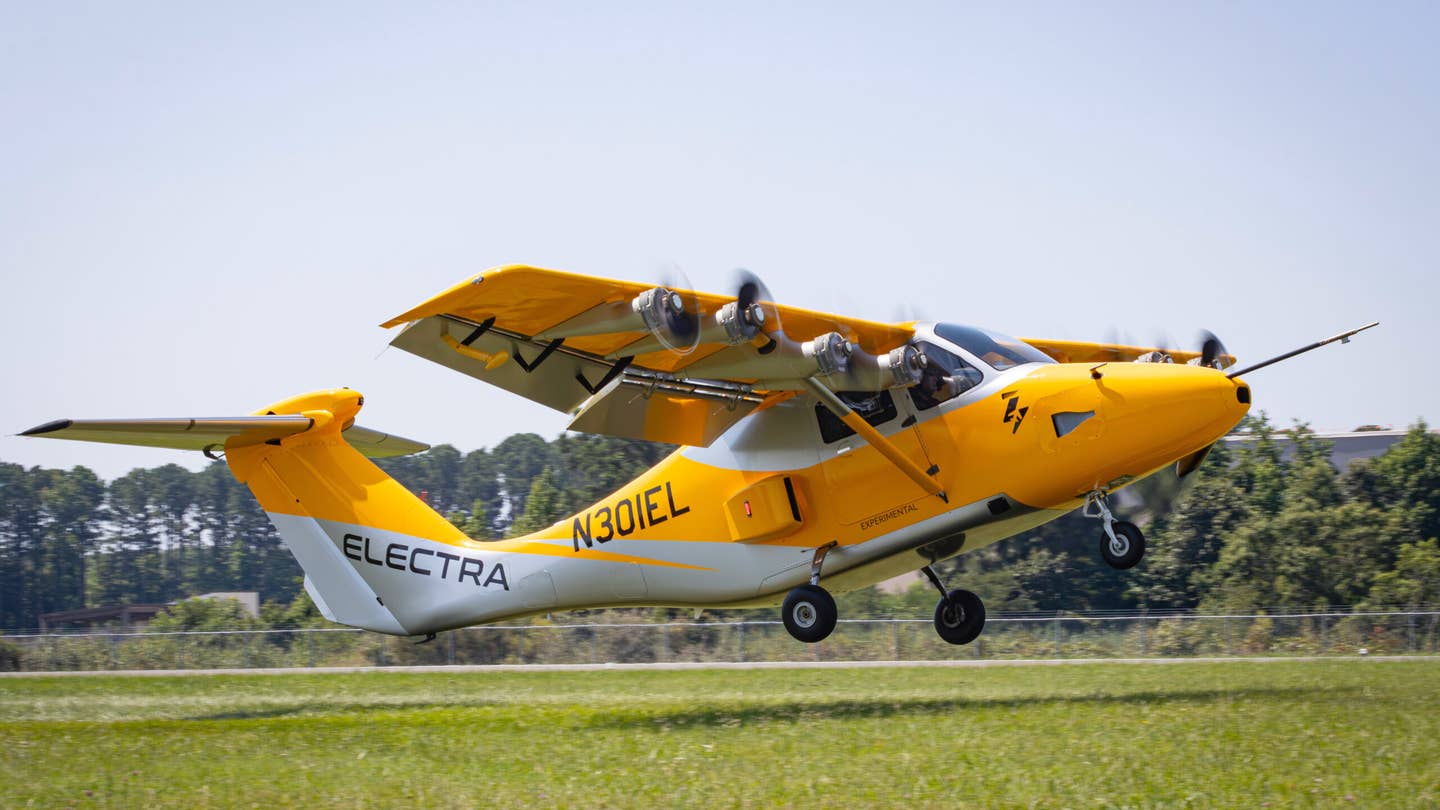Electra Achieves Takeoff, Landing With Under 170 Feet of Runway
The manufacturer’s hybrid-electric short takeoff and landing (eSTOL) demonstrator completes the first crewed flight test of its foundational capability.

Electra.aero’s hybrid-electric short takeoff and landing (eSTOL) demonstrator takes to the skies following its first piloted “ultra-short” takeoff. [Courtesy: Electra.aero]
Electra, the manufacturer of a hybrid-electric short takeoff and landing (eSTOL) aircraft designed to operate from soccer field-sized spaces, has reached a critical milestone in the development of its flagship, nine-passenger design.
The manufacturer on Wednesday announced that its EL-2 Goldfinch demonstrator—a two-seat version of the design used in testing—achieved its first piloted “ultra-short” takeoff and landing, lifting off with just 170 feet of runway and touching down with under 114 feet ground roll.
During a test campaign, the aircraft, which utilizes a unique blown-lift design, flew as slow as 25 knots during takeoff and landing. It reached an altitude of 6,500 feet and maxed out with a flight time of one hour and 43 minutes.
Flights took place in April and May at Manassas Regional Airport (KHEF) and Warrenton-Fauquier Airport (KHWY) in Virginia and were piloted by Cody Allee, chief technology officer of ABSI Aerospace & Defense and a former U.S. Marine Corps pilot.
“The aircraft handling at low speeds has been exceptional and is matching our analysis well, building confidence in the predicted capability of the nine-passenger product design,” said JP Stewart, vice president and general manager of Electra. “We’ll continue to develop our technologies, including the ‘thrust-by-wire’ flight control system, to allow us to fly even slower on approach and further improve the STOL takeoff and landing performance in the ongoing test campaign.”
Electra’s Goldfinch demonstrator first flew in November during a test to assess aircraft systems and functionality. Teams then began expanding the flight envelope with slower operations and practicing takeoffs, landings, and approaches.
But the initial demonstration of eSTOL maneuvers represents a major milestone for Electra. The company has made the ability to take off from soccer field-sized spaces the calling card of its flagship model, which like the Goldfinch makes use of blown-lift technology.
Electra envisions the eSTOL serving as a quieter, lower-emissions alternative to helicopters, with fewer infrastructure requirements than fully electric aircraft. It is expected to have a range of 500 sm (434 nm) and cruise at 200 mph (175 knots), faster than most rotorcraft. Use cases will range from passenger transport and on-demand urban air mobility services to cargo logistics, humanitarian aid, and disaster response, the manufacturer says.
To amplify lift, eight electric motors on the wing’s leading edge guide air flows over the wing into large flaps and ailerons, which direct them downward. The result, Electra says, is the ability to take off and land at speeds as slow as 35 mph, reducing the runway requirement to one-tenth that of conventional aircraft.
The eSTOL can be flown in hybrid or all-electric mode. It draws power from a combination of a turbogenerator and battery packs, with the former designed to power cruise flight and the latter takeoff and landing. The manufacturer says this keeps fuel burn and maintenance costs low. The turbogenerator—built to support sustainable aviation fuel, e-fuels, and hydrogen—can also charge the batteries during flight, making ground-based charging systems optional.
Electra hopes to introduce the nine-passenger model to the commercial market by 2028 as a multiengine, Level 3, low-speed airplane under FAA Part 23 regulations.
The company in January surpassed 2,000 aircraft preorder sales, with customers including U.S. operators JSX and Bristow Group and India’s JetSetGo. It also has aircraft testing and development contracts with the U.S. Army, Navy, and Air Force, which are exploring potential military use cases for the design.
Like this story? We think you'll also like the Future of FLYING newsletter sent every Thursday afternoon. Sign up now.

Subscribe to Our Newsletter
Get the latest FLYING stories delivered directly to your inbox






